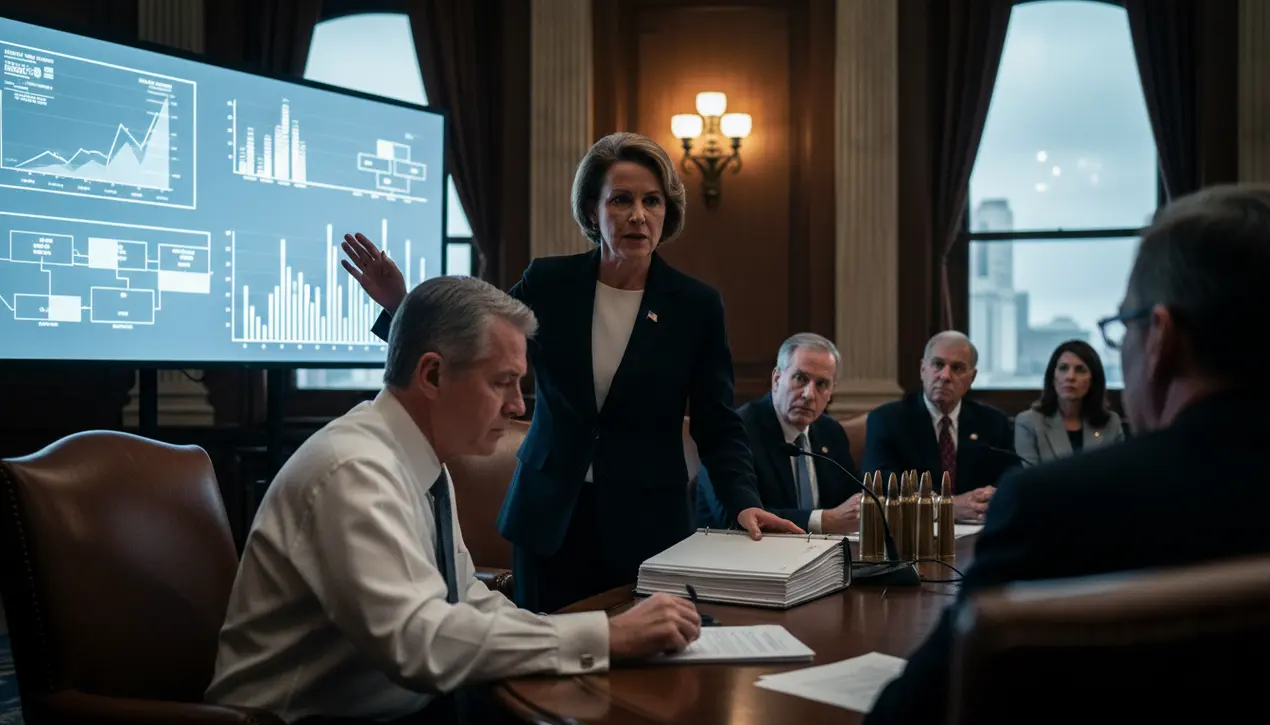
Politicsconflict & defenseArms Deals
US Senate Urges Faster Arms Deliveries to Taiwan
RO
Robert Hayes
2 days ago7 min read6 comments
In a hearing that echoed with the gravity of historical precedent, the US Senate Foreign Relations Committee was presented with a stark assessment on Thursday: Washington's current pace of arms sales to Taiwan is insufficient. The urgent call to accelerate these deliveries and establish a regional contingency stockpile for the island's defence underscores a critical lag in implementing the Taiwan Enhanced Resilience Act (TERA), a landmark 2022 law designed to fortify the self-governed island against mounting pressure.This legislative push, reminiscent of the strategic foresight exhibited during pivotal moments of the Cold War, aims not merely to transfer hardware but to bolster the morale of a democratic partner standing on the front lines of authoritarian ambition. The testimony before the committee highlighted a concerning disconnect; despite last week's approval of a significant aircraft sale, the broader, systemic provisions of TERA have yet to be fully realised, creating a dangerous window of vulnerability.Analysts drawing parallels to Churchill's warnings in the 1930s point out that bureaucratic inertia and delayed procurement processes can be as detrimental as overt hostility, effectively ceding the initiative to a Beijing regime that has consistently refused to renounce the use of force. The proposed regional stockpile, a concept akin to the pre-positioned equipment that reassured NATO allies throughout the latter half of the twentieth century, would serve as a tangible deterrent, ensuring that Taiwan could rapidly respond to any contingency without waiting for trans-Pacific supply chains to activate.This is not merely a theoretical exercise; cross-strait tensions have escalated markedly in recent years, with near-daily incursions by People's Liberation Army aircraft into Taiwan's Air Defence Identification Zone, a tactic of calculated coercion designed to test resolve and erode normalcy. The Senate's deliberation thus transcends a simple policy debate; it is a test of American strategic credibility in the Indo-Pacific.Failure to follow through on the promises embedded in TERA would be perceived in capitals from Tokyo to Canberra as a retreat from commitment, potentially encouraging further adventurism from Beijing. Conversely, a swift and decisive acceleration of arms deliveries, coupled with the logistical backbone of a contingency stockpile, would send an unambiguous message that the United States stands firmly by its commitments to a free and open Indo-Pacific, a principle that has underpinned regional stability for decades. The outcome of this legislative and executive effort will undoubtedly be dissected by future historians, much as the Munich Agreement of 1938 is studied today, not for its immediate peace, but for the catastrophic conflict its failure of resolve ultimately enabled.
#US-Taiwan relations
#arms sales
#military aid
#defense stockpile
#Senate hearing
#China
#featured
Stay Informed. Act Smarter.
Get weekly highlights, major headlines, and expert insights — then put your knowledge to work in our live prediction markets.
Comments
Loading comments...
© 2025 Outpoll Service LTD. All rights reserved.